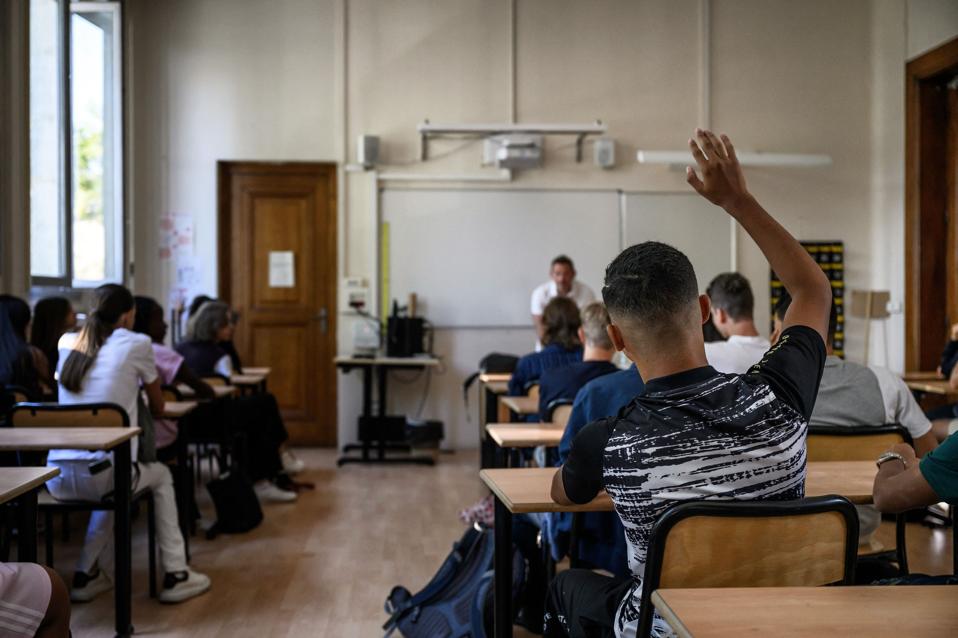Flexible working is key to tackling the teacher shortage and keeping teachers in the classroom, according to a new report.
Part-time posts, personal days and giving teachers the opportunity to complete tasks off-site could all help improve job satisfaction and encourage teachers to stay in the profession.
But school leaders warn that this could put a strain on already overstretched school budgets.
A shortage of qualified teachers is the number one problem facing school leaders, as record numbers quit the classroom and recruitment failing to reach targets.
Now a series of reports for the U.K.-based Education Endowment Foundation (EEF) has looked at a number of strategies to improve recruitment and retention.
Alongside flexible working, the review also examined the potential to reduce workload – identified as a key reason teachers leave the profession – and the role of school leaders in creating a positive school climate.
Flexible working could be one of the more fruitful areas for improving retention, according to experts at the National Foundation for Educational Research (NFER), commissioned by the EEF to carry out the review.
Using case studies, interviews with experts and a literature review, NFER researchers suggest that more flexible working could improve productivity and motivation, in addition to well-being and job satisfaction.
While part-time working is the most common type of flexible working found in schools, other options include phased retirement, flexible hours, personal days and remote working.
Although teaching does not have the same prospects for remote working as many other professions, the ability to complete some tasks off-site may be possible.
But the review also highlighted concerns among school leaders that flexible working could stretch school budgets even thinner, as well as potentially proving disruptive to students.
The root cause of the staffing shortage was a chronic underfunding of schools, according to Geoff Barton, general secretary of the Association of School and College Leaders.
“The ability of schools to offer flexible working opportunities as an approach to staff retention is also affected by financial costs, staff availability and workload,” he said.
While between a fifth and a third of teachers work part time, analysis carried out for the review suggested only three per cent of schools publish a policy on flexible working.
Workload is the chief reason cited by teachers leaving the profession, and a second review looked at ways of managing workload, including timetabling time for planning and marking, offering access to existing lesson plans and timetabled planning.
Teachers were more likely to have higher job satisfaction in schools where there were more workload reduction strategies in place, the review found.
“Recruiting and retaining enough teachers in state-funded schools is a crucial challenge for the education sector. We have seen the challenges intensify since the pandemic and these are particularly affecting schools serving the most disadvantaged communities,” said Jack Worth, school workforce lead at the NFER, which also carried out the workload review.
“Research has consistently shown that improving retention is key, and manageable workloads and opportunities to work flexibly, when needed, are vital for retaining teachers,” he added.
But Mr Barton said many schools were already using many of these strategies, and attention should instead turn to external factors, primarily the role of government and school inspectors in creating additional work.
“The evidence is clear that the answer to addressing very high levels of teacher workload – one of the main causes of teacher shortages – lies to a large extent with the government,” he said.
The third review, by researchers at Durham and Warwick universities, looked at the role of school leaders in improving staff retention.
It found that promoting teacher development, creating a support system and maintaining a positive school climate can help motivate and retain teachers.
“Working out how to improve recruitment and retention rates in our schools is the most pressing priority for our education system,” said Professor Becky Francis, EEF chief executive.
“It’s absolutely vital that we have highly skilled teachers in classrooms, particularly in light of the disruption to education we’ve seen in the last few years.”
The research aims to set schools on the path to understanding how to make teaching an attractive and sustainable career path, she added.

